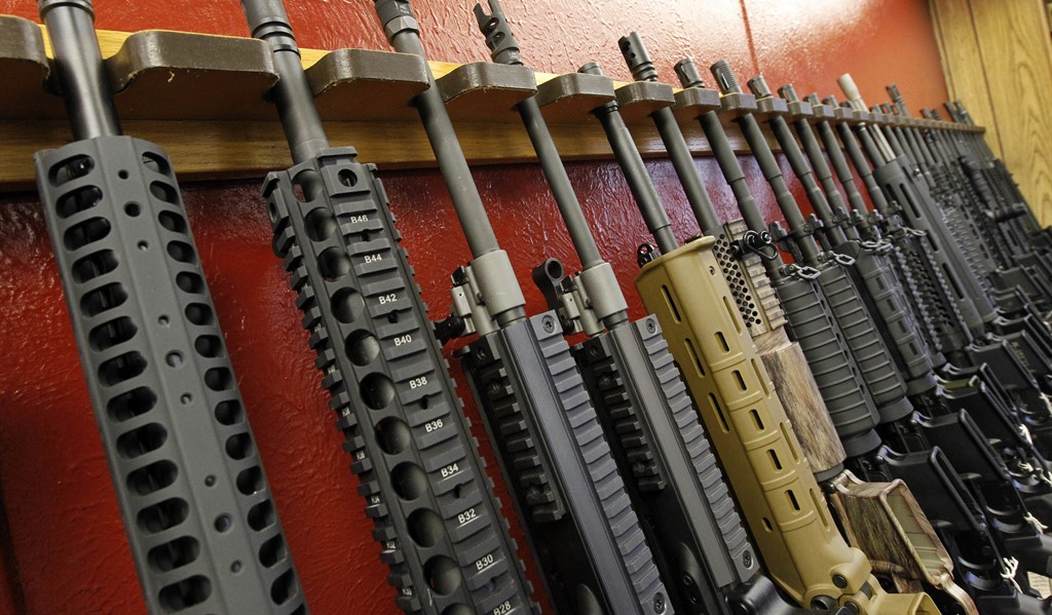Even though he made some basic mistakes in his reporting, I’ll give the Washington Post’s Philip Bump a slight amount of credit for trying to wrestle with the conundrum at the heart of the gun control movement: the 400-million (and rising) privately-owned firearms in the United States. All too often, anti-gun activists and their media allies simply gloss over the inconvenient fact that there are an awful lot of gun owners in the United States who aren’t interested or willing to give them up; choosing instead to spout off vague and fuzzy talking points about how there are “too many guns” in circulation and the supposed need for “common sense regulations” to “curb easy access” to firearms.
The problem for Bump (and the gun control movement overall) is that they view crime reduction as a supply-side issue; the only way to reduce violence is to reduce the number of guns in our society. As Bump wrote:
Partisan politics heavily infects both gun ownership and the response to gun ownership, of course. The National Rifle Association’s effort to argue that the best antidote to gun violence is an armed response has become a central tenet of Republican politics. On Monday, The Washington Post published a lengthy look at how the AR-15 became a central part of the political discussion about gun ownership and how it became a talisman of pro-gun advocacy.
It is estimated that there are 20 million AR-15-style rifles in the United States at this point — a powerful, deadly type of weapon that didn’t exist as a consumer product two decades ago.
There have been proposals aimed at reducing that figure. As part of his short-lived 2020 presidential candidacy, former Texas congressman Beto O’Rourke (D) proposed buying back assault-style weapons like the AR-15. Even if that were fully successful, of course, there would likely still be some 300 million firearms in the United States, according to that 2012 CRS report. Many of the deadliest firearms would be gone, but hundreds of millions of more would remain.
If significantly reducing gun deaths necessarily means significantly reducing firearm ownership, you can see the problem. It’s hard to think of a way that ownership could be reduced significantly, even if the political will to do so suddenly materialized.
There are far more American guns than there are Americans.
Now, I have no idea where Bump got his claim that AR-15s and other modern sporting rifles didn’t exist as a consumer product until the early 2000s, especially since his employer just ran a 10-part series on the AR-15 that included a look at how it’s been marketed since the 1960s, but that mistake pales in comparison to the idea that public safety is tied to the number of firearms in the hands of peaceable Americans.
The number of firearms in civilian hands has only grown over the decades, while the nation’s crime rate has risen and fallen over that same time period. Violent crime increased from the mid-60s up until the early 1990s before beginning a steady and sustained decline for almost 30 years. As crime rates were dropping, tens of millions of firearms were being sold and millions of Americans were embracing their Second Amendment rights; not only becoming gun owners but acquiring their concealed carry license as well.
Clearly, then, we can reduce significantly reduce violent crime without choking off the supply of firearms. Not only can we do that, we have done it. The fundamental premise of gun control has already been proven to be a lie; more guns does not equal more crime. The anti-gunners actually get it backwards. In order to effectively reduce violent crime involving firearms we need to reduce the demand for guns among criminals, and the best way to do that is to ensure that there are consequences for their crimes; starting with an arrest and ending with a conviction and a meaningful sentence instead of a sweetheart plea deal. This isn’t rocket science, but it’s not gun control either.
Bump is right about one thing, however. It is hard to think of a way that gun ownership could be reduced significantly because most of us aren’t interested in scrapping our Second Amendment rights. Quite the opposite. There have been millions of new gun owners over the past few years, and that number is likely to continue to grow as Americans of all races, colors, and creeds reject the anti-gun activists’ demands to disarm or to never pick up a gun in the first place.









Join the conversation as a VIP Member